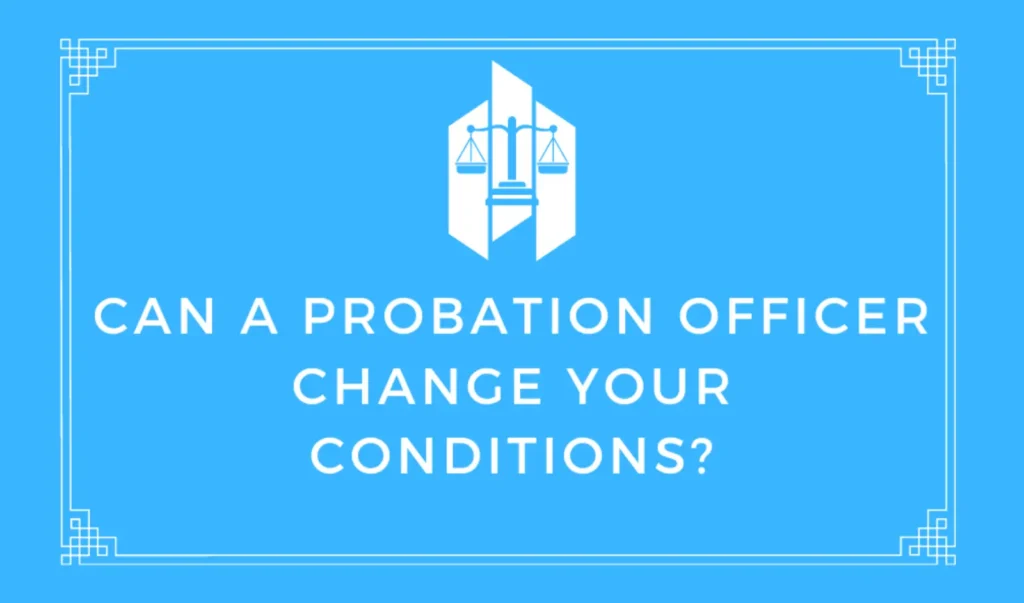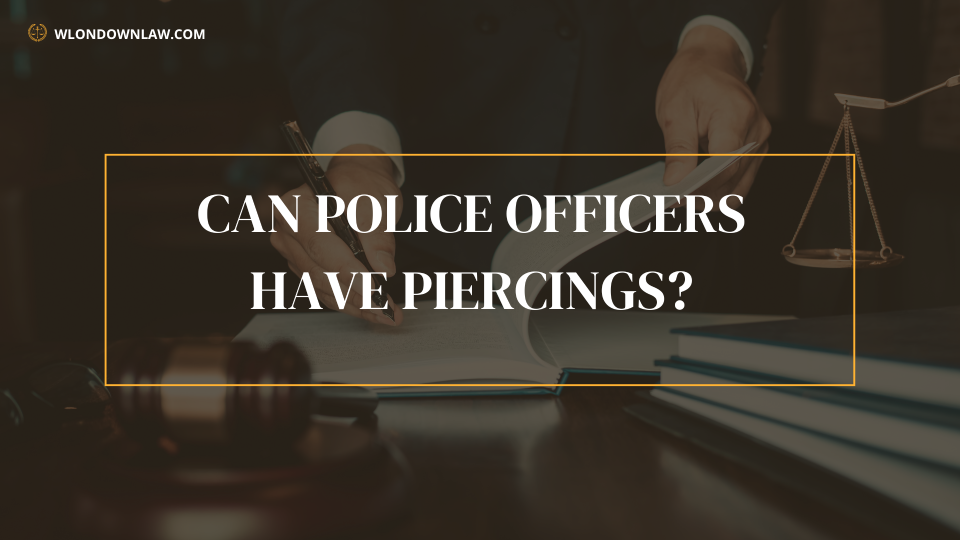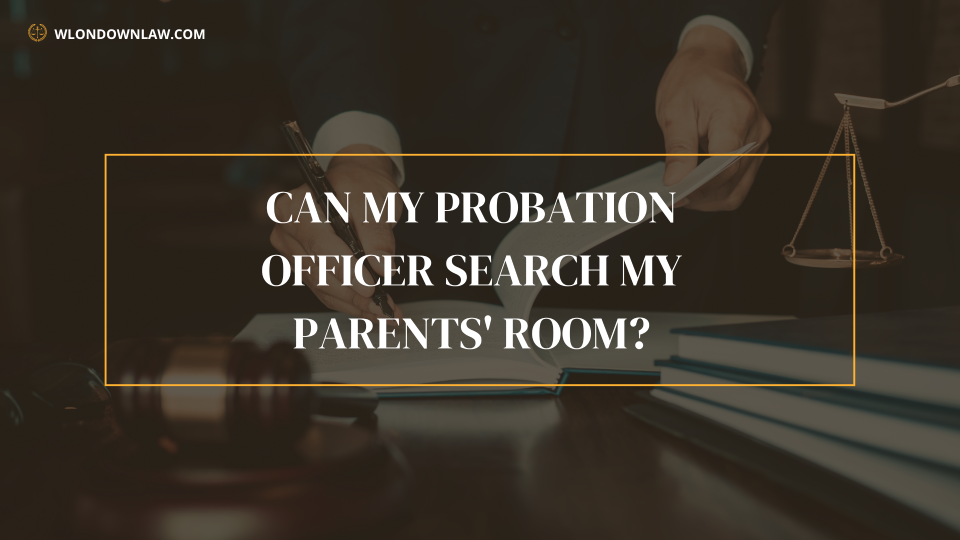Did you know that a probation officer has the power to modify or change the conditions of your probation or decide if you should serve jail time? Probation officers indeed have this power, thanks to the Fourth Amendment of the United States Constitution.
So if you’re on probation, you should know that the conditions may change for you. This blog will talk about Can a Probation Officer Change Your Conditions?
Probation is an order that is entered into the court records for some time. It is usually entered when a defendant is found guilty of a criminal offense.
It can include an order that a defendant stays away from a specific location or any other requirement that the court requires. Probation officers are the judges of their jurisdiction.
They can issue orders and make modifications to the original order. Probation is often used as a way of providing additional support for a defendant who cannot make good on the terms of their probation period.
Probationers are expected to meet with their probation officers regularly to show progress toward the goals.
Sometimes, a probation officer may decide that a particular condition needs to be changed. Let Us Explain!

Can a Probation Officer Change Your Conditions?
In the criminal justice system, the courts often use probation as a form of punishment. A person convicted of a crime may be sentenced to a period of probation, which typically lasts three to five years.
During the probation period, the offender must obey all of the conditions set out by the court. These include abiding by certain rules while living in a certain location and remaining within a certain distance of their family or loved ones.
A probation officer can change the conditions of probation in certain situations. It is typically done if the person has violated a rule or condition during probation.
The most common reason for changing a condition is if a probationer fails to meet a required drug test.
Your Supervised Release terms might be modified by a probation officer as well. Suppose you violated a term of your Supervised Release or got into difficulty with your probation officer (for instance, by testing positive for drugs). In that case, your conditions may be changed (referred to as “modifications“).
Power of the Probation Officer
The court’s probation order and the laws of the state where the defendant’s case is pending provide the designated supervising probation officer with their authority. (Or, in the case of a federal case, the country’s laws).
The probation officer typically has extensive authority to monitor the defendant’s compliance.
The probation officer must have the defendant’s permission before searching for his person and residence.
The PO demanded that the defendant undergo a substance misuse test, verify the prescriptions, and call the defendant’s place of employment.
The probation officer has the option of “violating” the offender for breaking the rule(s) in question (which results in a probation violation proceeding).
The probation officer can ignore the defendant’s difficulties or propose fixes for compliance problems that don’t merit a PV hearing. However, the probation officer is not permitted to alter the terms or requirements of the probation, release, or any other court orders on his own.
For a judge to impose the adjustments, the probation officer must instead start a proceeding to amend the probation’s conditions or requirements if he wishes to see something different (or not). The court documents orders cannot be changed by anybody other than a judge.
Position of Defendant in a Modification
A modification of probation is one of the most frequently used ways to make changes in the way a defendant’s sentence works.
It can be done by sending a new report back to the court with your recommendations. The problem with modifying probation is that it is not done very often.
The defendant has a right to be heard when the court is asked to modify the defendant’s probation order(s). A defendant can just be asked to “sign off” on the modifications (meaning agree).
The defendant has the option to accept the agreement’s terms or decline to sign it and ask for a hearing instead.
The defendant would be entitled to legal representation and assistance throughout the proceedings. However, by approving the modification, many defendants waive their right to counsel at some point in the modification process, not realizing that they also have the option of having a judge hear their case.
Do Defendants Have the Right to Oppose a Modification Request?
In general, no. The court may make changes to the terms of probation at its discretion, but there is little chance that a modification of probation will ever occur unless a defendant wants it to.
If a defendant declines to sign the proposed changes, he does not lose his right to a hearing. However, we are not sure about that. We are unaware of the specifics of any case or the reader’s location.
There may be valid justifications for approving a modification, such as:
- No matter what the defendant claims,
- The modification would help the defendant stay compliant,
- The alternative would be worse (like a motion to terminate probation entirely), and fighting it would be too expensive in terms of legal fees.
- The modification would also help the defendant remain compliant.
There may be valid grounds to object to a probation officer’s request for a change, such as:
- The situation/evidence backing the modification request is false or insufficient.
- The defendant’s right is to have a hearing and be heard if the modification is brought about by disapproval or harassment and would not serve the ultimate objective of effectively completing probation.
The defendant must ultimately consider his objectives and situation. Most would advise that he consult with a lawyer in the court where the case is being heard who has experience in post-judgment criminal proceedings if he has any doubts about whether or not he should “sign off” on the desired alteration or oppose it.
A local attorney can explain to the defendant how proceedings work with that specific judge and court.
Additionally, he can inform the offender of his rights at a hearing for a modification and what he can do to complete probation successfully.
Final Remarks About Can a Probation Officer Change Your Conditions?
The answer is yes! However, many people aren’t unaware that they can and may be unaware of the consequences. If the probation officer changes your conditions without your permission, it can have serious consequences for you.
So, if you are on probation, stay in constant contact with your probation officers to make sure that any changes are communicated to you. If you don’t agree with their new terms, you can tell them to take them back and discuss changes with you.
There are a few things that you can do to help you get your conditions changed. For instance, requesting a parole hearing and submitting your plan during the hearing are helpful tactics that can increase your chances of changing conditions.
Thank you for reading. We could not be more excited about being able to provide helpful content on a topic like this!


